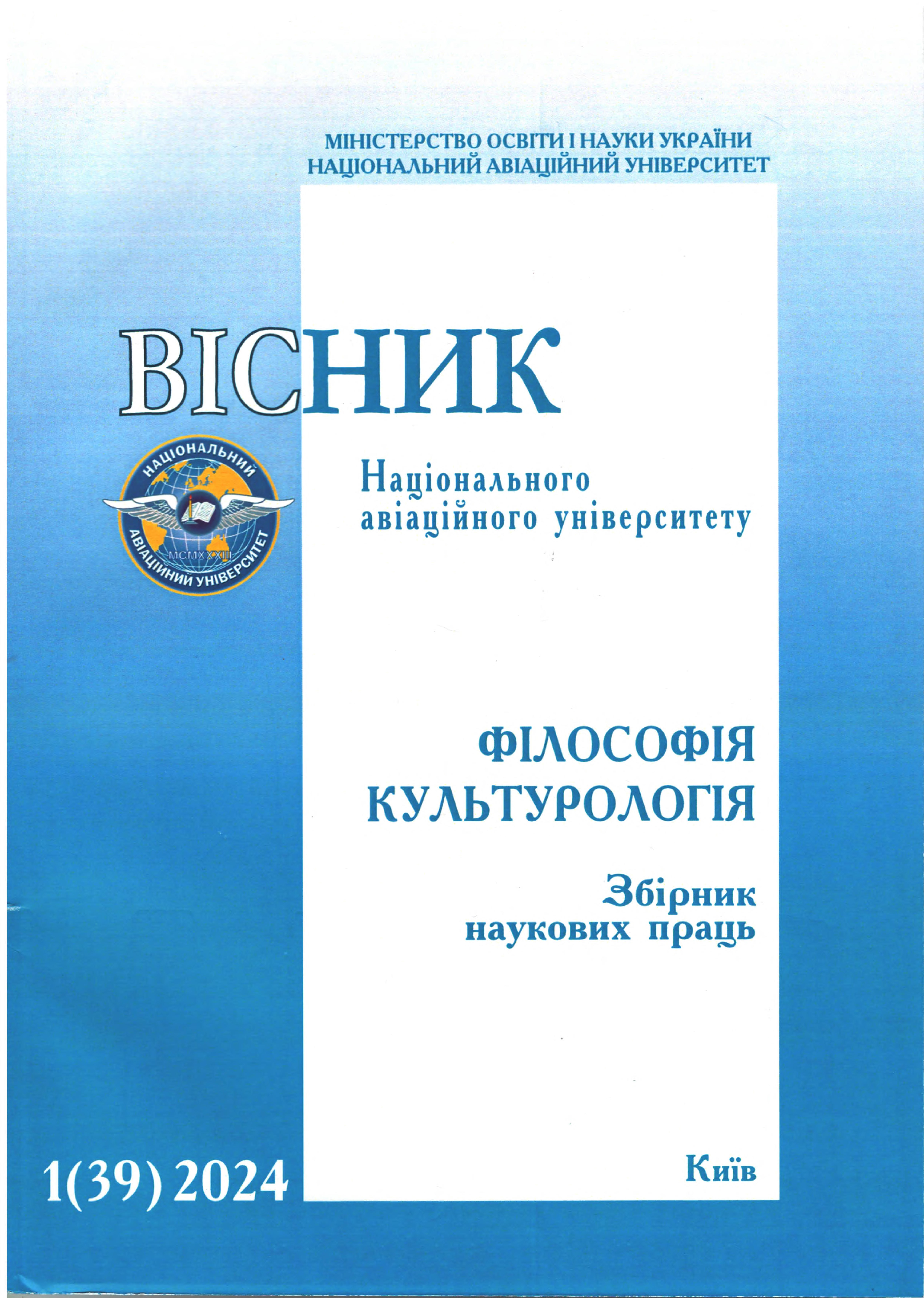POST-METAPHYSICS OF HISTORY AND SOCIETY
DOI:
https://doi.org/10.18372/2412-2157.39.18426Keywords:
metaphysical space, eschatology, ontology, analytical post-metaphysics, consciousness, transcendent and immanent, ideal type, social and ideal values.Abstract
Introduction. Attempts to study history using analytical metaphysics are considered in both ontological and epistemological aspects. The effectiveness and value of post-metaphysical thinking in humanitarian knowledge and cognition, in comprehending existence and studying history is substantiated. Particular attention is paid to solving the issue of the relationship between the transcendental and the immanent in people’s lives, the interaction of the metaphysical world with the life world of people, social space, and the consciousnesses of empirical subjects. The aim and tasks are: to study the experience of using post-metaphysics as theoretical thinking in the knowledge of the principles of being and the subsequent use of metaphysical discourse, and its heuristic capabilities in the study of society and its history. Research methods. According to the research, historical-philosophical, historical and interdisciplinary approaches are based on the principles of sociocultural understanding of scientific knowledge, methods of hermeneutics and axiologists. Research results. Metaphysics is included in social consciousness, social space, and the activities of many empirical individuals, whose consciousness combines the rational and irrational, conscious and unconscious, logic and experiences, and mental and emotional. The metaphysical whole, formed based on ideas, thoughts, values, and the entire content of the consciousness of individual people, is not their sum, a mechanical unification of individual consciousnesses. It will rather be a synthesis of ideas, concepts, teachings, and principles, "withdrawn" from individual consciousnesses and in this form appears to be a qualitatively new phenomenon. Society, culture, and history, as we know, "answer" our questions, but we ask them, and the answers to them depend on our formulation of problems. Discussion. In modern philosophical and historical literature, a new form of historicism and meaningful justification of the meaning and purpose of history is being formed. Classical and new historicism share a historical view of things, which assumes that we are all inside something that once began and will end sometime. The differences are related to the development of the historical process itself, the transformation of its political and legal institutions, and ideas about it as a sequential connection of individual and unique events. Conclusions. The functioning and development of society, in contrast to the natural process, is irrational and illogical; it cannot be described by the concepts, principles and categories of classical science; there is something inaccessible to us and incomprehensible to us. That is why history is always a mystery that cannot be completely resolved.
References
Aron R. Introduction a La Philosophie de I / histoire. Paris, 1948. 374 p.
Aron R. Dimensions de la consciensce historique. Paris, 1961. 274 p.
Vedrin H. Les philosophies de l histoire. Declin ou crise? Paris, 1975. 210 p.
Fukuyama Francis. The end of history and the last man. The Free Press. A Division of Macmilan, Inc. New York, 1992. 413 p.
Hantington Samuel P. The clash of civilization and the Remaking of World Order. New York, NY: Simon and Schuster, 1996. 368 p.
Hὅsle Vittorio G. Moral and Politics. Notre Dame, Indiana: University of Notre Dame Press, 2004. 931 p.
Габермас Юрген. Постметафізичне мислення. Філософія освіти. 2010, № 1- 2 (9). С. 67-102.
Габермас Юрген. Постметафізичне мислення. 111. Між метафізикою ікритикою розуму. Філософія освіти. 2012, № 1-2 (11). С. 27-87.
Гачко О. Чи можлива історія в епоху постметафізики? Наукові записки Українського Католицького Університету. Серія: Філософія. 2012. Ч.3: Філософія, вип 1. С.111 – 122.
Сатохіна Н. І. Постметафізичне мислення у праві: приклад герменевтичної філософії. Вісник Національної академії правових наук України. Вип.4, 2019. С.151-164.
Синяков С. В. Метафізика. Велика українська енциклопедія. URL: https://vue.gov.ua/Метафізика. 2021.
Халапсис А. В. Постнекласична метафізика історії: Монографія. Дніпропетровськ: Вид-во «Інновація», 2008. 278 с.

